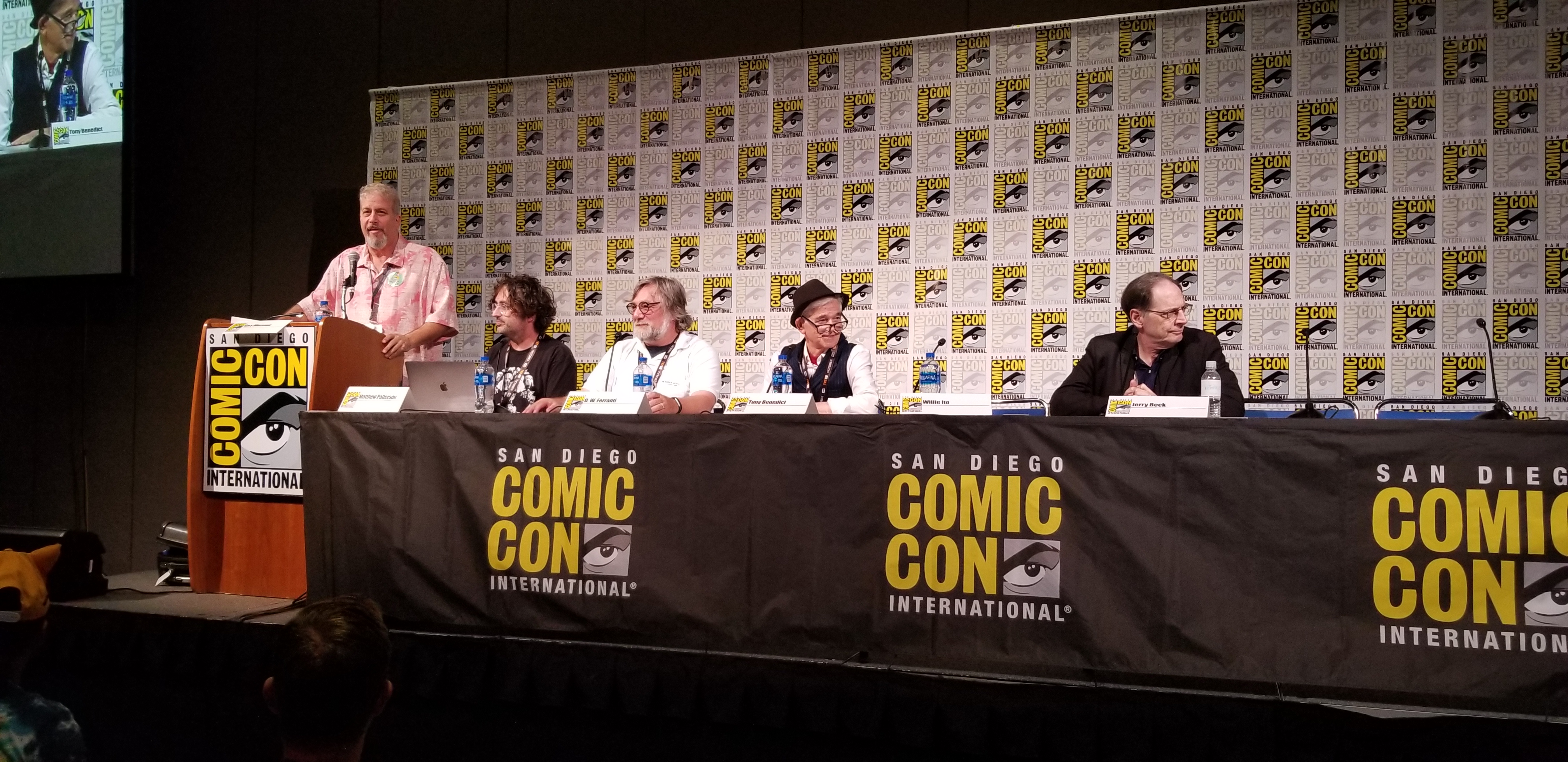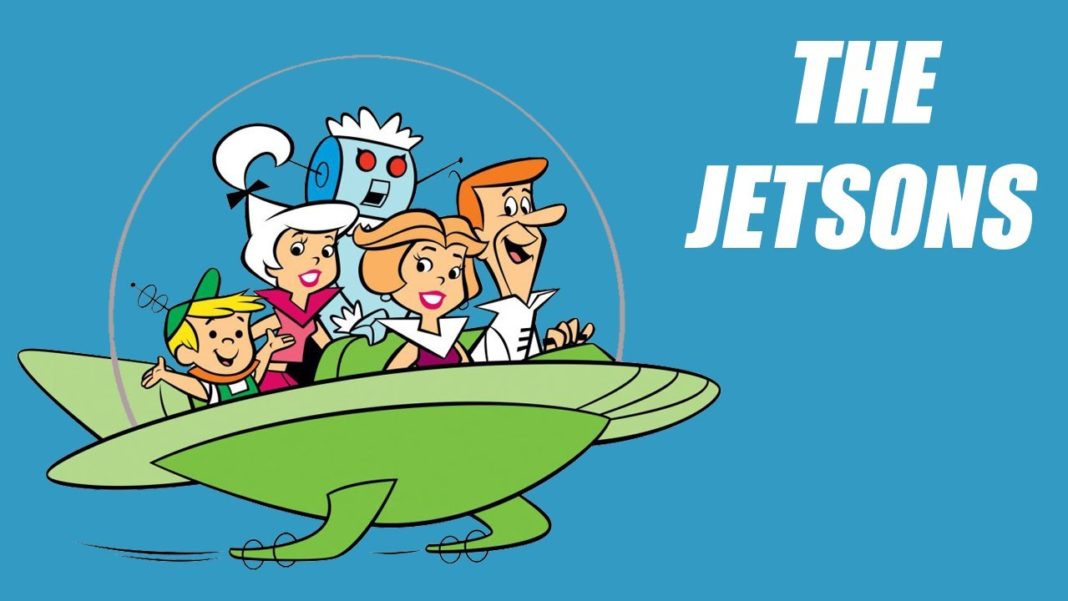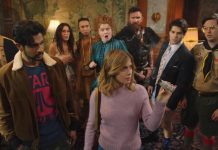By Gabriel Neeb

Joining Matt Patterson and D.W. Ferranti (of Warner Archive) were animation historian Jerry Beck and the man that wrote most of the cartoons you saw as a child, including all 24 episodes of The Jetsons, Tony Benedict. The panel was moderated by Gary Miereanu of Warner Brothers Studios.
The panel began with a brief introduction to the Warner Archive, an initiative that began to sell some of the more obscure titles in the Time-Warner film and television library in 2009, and a plea to keep those players hooked up! And over the next 60 minutes, the handful of restored Jetsons clips made a compelling case for that.
Beck began with placing primetime animation into the relevant historical context by describing how in the early 1960s, most animation was still big-studio controlled. As animation was labor intensive, there wasn’t much interest from the three networks in primetime animated shows. The success of The Flinstones in 1960 changed that, paving the way for The Jetsons to premiere in 1962. Beck expressed a fondness for this series out of many of the Hanna-Barbera series of the time, even though cool future stuff has yet to come to pass (like flying cars and stilted buildings).
Benedict then described the genesis of The Jetsons as a pitch brought to Flinstones producer Alan Dinehart. Benedict mentioned how the popularity of Huckleberry Hound and Yogi Bear at cocktail lounges created a market for more, adult-focused animated shows. The actual work of creating the shows was a little tougher as these shows would require sitcom writers… who were not well-versed with the visual humor of animated shorts and shows.
To emphasis the visual nature of this, the opening of The Jetsons was played. It looked great, and much of the audience sang along.
Warner Archive was proud to be able to use original material which was well preserved due to being “future proofed” thanks to historical circumstances, like only 3 percent of US households having a color TV in 1962, and many broadcast stations not even bothering with color broadcasts. So now, the craftsmanship of each cel can show through in high definition.
Benedict mentioned how this positive vision of the future is still the ideal when such a concept is discussed, and that it was a future that didn’t have so many passwords. Alas, while we press as many buttons as they do on The Jetsons, we don’t have the three hour workday.
Beck enthused that now, in HD, some of the interesting aesthetic choices become visible. We can see brush strokes in the cels. The color palette used so it could look good in black and white is more apparent: “The future is pastel, designed for black and white.”
A clip showing the introduction of the Jetsons’ family dog, Astro, was shown and the audience awed when George Jetson seemed to reject him in favor of his nuclear-powered electro-dog. Benedict shares some credit for the creation of Astro, and he may have served as the forerunner of cartoon dogs for the next 40 years.
The thing about The Jetsons is, that if you’ve never seen the show, you know The Jetsons. It is the idea of that perfect future and still holds a power of its viewers. A clip that showed a futuristic band playing “Eep Oop Orp” held the room in rapt attention.
Benedict was asked by the moderator how episodes got created. He replied that new ideas would be run through Joe Barbera at his Bel Air home, with Joe adding and subtracting things before an episode was written and produced. All this was before networks would really start to interfere in years to come, with episodes sailing through production. Benedict then took a moment to mention he goes into more detail in his book, The Laugh Days of Hanna-Barbera, coming soon.
Benedict said that in those days, as the major studios were losing interest in their animated studios, the best talent was finding its way to Hanna-Barbera, with a legacy that continues to this day.
The panel would conclude with a look at the end credits of The Jetsons, with Tony Benedict’s name in the credits getting a loud round of applause.
The Q&A period would reveal that episodes were often written in two weeks. That the creators had no idea they’d still be talking about the show, or any of their shows, 50 or more years after they were created.
While the Warner Archive had nothing to announce regarding further Hanna-Barbera series like Quick Draw McGraw, they had hopes that good sales might compel more series to Blu-ray.
The Jetsons is available through the Warner Archive website. Take a look at how the future should be.








